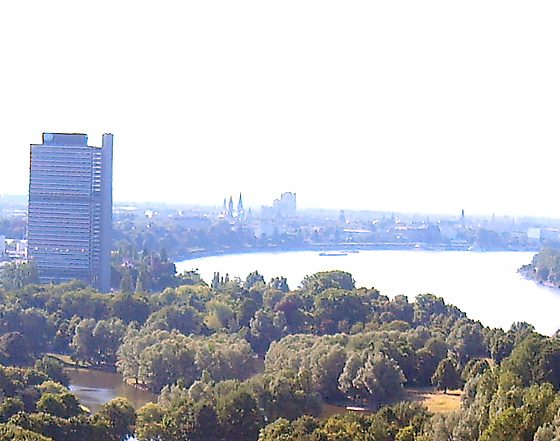The Climate Reality Project and former United States Vice President Al Gore organized the event with support from ICLEI. Attending the event, ICLEI President and Mayor of Malmö, Sweden, Katrin Stjernfeldt Jammeh, highlighted the urgent need for climate action and well-funded solutions.
Paris, France, 30 March 2025 – Civil society and local leaders from around the world gathered in Paris for the Climate Reality Leadership Corps training. The event, organized by The Climate Reality Project and former United States Vice President Al Gore, and supported by ICLEI – Local Governments for Sustainability (ICLEI) and C40 Cities among others, marked a symbolic starting point for global mobilization toward the 2025 UN Climate Change Conference (COP30) in Belém, Brazil. It also marked ten years since the adoption of the Paris Agreement.
Held from 28 to 30 March, the event launched the Climate Ambition Tour, a year-long effort to accelerate climate solutions and advocate for a just, fossil fuel-free future. With over 3.8 million individuals already trained globally to date, the initiative brought together grassroots advocates, young leaders, government officials, and entrepreneurs to gain the knowledge, strategies, and networks needed to push for climate ambition, especially in the lead-up to COP30.
In his keynote address, Al Gore painted a bleak picture of the current climate emergency. “We are now leaving the known and entering the unknown,” he said, citing the record-breaking temperatures of the past decade and the daily release of 175 million tons of greenhouse gases. Gore highlighted the cascading effects of global warming, from disrupted water cycles and desertification to the loss of glaciers and the growing number of people displaced by climate-related disasters. Gore spotlighted the rising cost of inaction, especially for cities. He pointed to mounting pressure on infrastructure, insurance systems, public health, and food security. He called for an immediate transition away from fossil fuels, adoption of regenerative agriculture, and investment in climate resilience to protect communities and ecosystems.
Paris Mayor Anne Hidalgo reflected on the significance of this moment, noting the anniversaries of COP21 and the upcoming COP30. “While national agendas shift, cities remain consistent. We introduce low-emission zones, reintroduce nature in our streets, and renovate buildings. Now we must push for climate justice,” she said. She also warned about the “oceans of lies” undermining public support for climate action. “We need to communicate better. Rational arguments alone are not enough; we must tell a hopeful story.”
ICLEI President and Mayor of Malmö, Sweden, Katrin Stjernfeldt Jammeh, stressed the importance of connecting climate and social action. “Our citizens experience the climate crisis first hand. We have no choice but to act,” she said, presenting Malmö’s green bonds and climate contracts with the construction sector as examples of such action. Jammeh also underlined ICLEI’s role in facilitating international coordination, citing the Transformative Action Program and the Town Hall COPs as mechanisms to elevate local voices. “From COP30, I want to see real progress in how local governments are involved in shaping policy and accessing funding. We are running out of time.”
Phyllis Cuttino, CEO of the Climate Reality Project, focused on systemic reforms: She called on Multilateral Development Banks to lower the cost of capital for rebuilding after climate disasters. “Climate finance must move from being a problem to being the solution,” she said. She also urged the next COP presidency to limit the presence of fossil fuel lobbyists and ensure greater transparency.
Laurence Tubiana, architect of the Paris Agreement and now CEO of the European Climate Foundation, emphasized the importance of public participation. “What has changed since COP21 is people’s engagement, especially youth. We must defend democracy and not be afraid to stand up,” she said.
Former UNFCCC Executive Secretary Christiana Figueres closed with a challenge. “We are racing two exponential curves: One of solutions, one of threats. The question is not the direction but the speed and the scale. Will they intersect in time?”
As the Climate Ambition Tour continues in more than ten cities in the coming months, the launch event in Paris offered a clear reminder of what is at stake. For ICLEI and its network of local and regional governments, the journey to Belém is not just symbolic. It is an opportunity to reinforce the role of local leadership in shaping global climate policy.
“It’s at the local level that the real work happens,” said Jammeh. “But we cannot do it alone. We must keep climate action high on the agenda and ensure the road to Belém delivers bold, inclusive, and well-funded solutions.”





